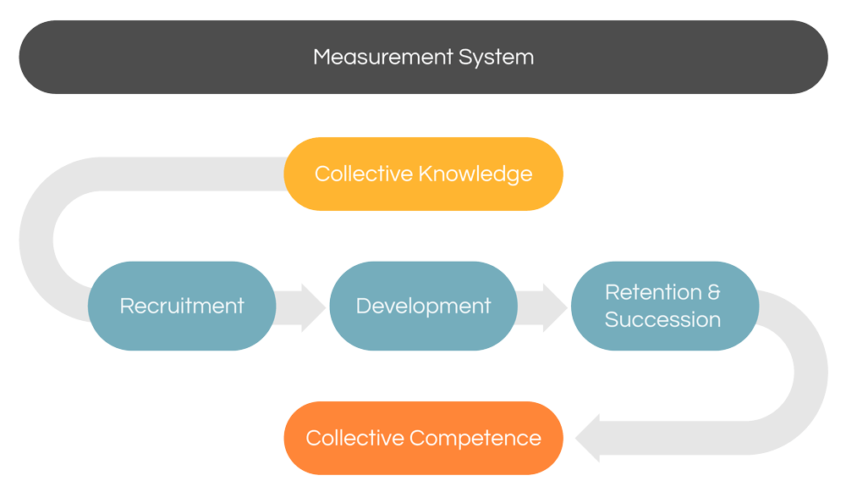If you can’t measure collective procurement team capability – are you really competent?
Businesses are increasingly incorporating skills assessment tools into their development programs. Adopting a more strategic, data-driven approach to capability development, focused on understanding collective procurement team capability rather than just individual capability.
CPOs wouldn’t dream of allowing managers to keep intricate details of the company’s physical assets in their heads, their capabilities, utilization, etc. However, this is what happens with employee skills and resource management. Despite CPOs acknowledging the importance of people and the increasingly challenging battle for talent, many organizations don’t leverage technology to help them better manage, develop, and deploy their people.
1. Choosing the right procurement skills assessment
Fundamental to the use of assessments is their credibility. Assessments must demonstrate reliability and flexibility to ensure valid and equitable outcomes, using agreed standards to provide enterprise-wide insights.
You don’t need a labor-intensive skills management program to benefit from skills assessments.
iProcure provides:
- A scalable online solution.
- Storing results in a secure database enables analysis and review for immediate hiring.
- Training and development.
- Succession planning.
2. Aggregated Skills Gap Analysis & collective procurement team capability
Use iProcure to identify collective competence at an organizational, team, role, or competency level. Apply this insight to prioritize the development of more effective recruitment and training events and support succession planning.

Do you know your teams Collective Competency?
3. Your Skills Intelligence Database
iProcure provides a comprehensive database making up your organization’s collective knowledge to locate individuals with specific skill sets. For example:
3.1 Project Staffing
When staffing special projects, it is vital to put together team members whose skills are complementary. Insights provided through iProcure help you avoid building teams with ‘collective weakness’ in critical areas. Easy-to-read graphic visual displays help to ensure your project teams have the best mix of skills to support the goals and objectives of the project.
3.2 Merger & Acquisition Integration
iProcure enables the rapid assessment of target company employees using your organization’s competency framework to identify high performers, benchmark against existing staff, and identify development needs early on.
With speed of integration a critical factor for driving value from M&A, this ability to to rapidly assess and deploy incoming staff becomes the critical value driver.
3.3 Career & Succession Planning
With iProcure, managers and employees can better develop a career plan. iProcures ability to track learning and map results helps to create appropriate development plans and to signal when employees are ready for the next level.
3.4 Recruitment & Benchmarking
Using iProcure, you can measure the knowledge of your existing employees and use the results as a benchmark for external candidates. Go a step further and compare your employee’s results against all those who have taken the same assessment globally.
4. Conclusion
Talent is widely recognized as the single most significant challenge facing CPOs today. The need to attract, develop and retain top procurement talent continues to be a competitive differentiator. Failure to take this seriously will undoubtedly leave organizations under-resourced and without the right, capability, and competence to deliver against business goals.
Data, technology, processes, and talent are the pillars of procurement success. iProcure turns employee knowledge into hard data, using technology that can be scaled globally to help drive the value added by the procurement organization.
Evolution is necessary to survive. CPOs can establish a sustainable, continuously growing, and genuinely value-added procurement organization by taking regular inventory of their team’s skills and maintaining the right balance.
Nuff said…

